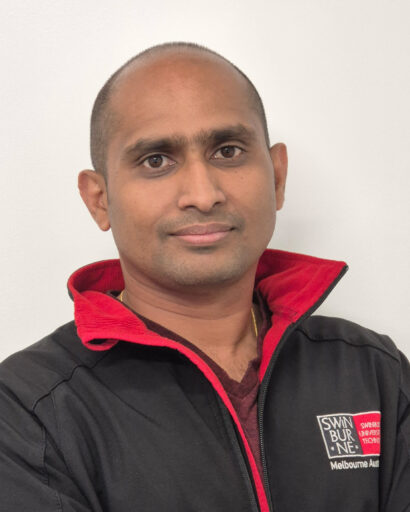Postdoctoral Research Fellow

Aruna is a professional civil engineer specialising in geotechnical and structural engineering with a PhD focused on expansive soils and residential slabs. With over 8 years of experience designing foundations for homes on expansive soils at VHC and VHP Consulting Engineers, he joined Strand Forensic Engineering part-time in 2020 and became associate director in 2025, specialising in structural damage rectifications. Additionally, he works as a research fellow at Swinburne University, fostering industry linkages and supporting higher degree research students. His career combines practical experience, research, and teaching, bridging the gap between academia and industry.
Swinburne University of Technology
Presentation (accepted for the 2025 Helical Seminar Program in Durham in May 2025): Investigation of the Tensile and Compression Capacity of Mono Helix Screw Piles for Anchoring Lightweight Residential Footings on Expansive Soils.
Expansive soils cause significant damage to lightweight structures worldwide, leading to billions in repair costs. In Victoria, Australia, volatile climate conditions have resulted in severe damage to homes built on expansive soil, with 5.3% of homes in Melbourne’s western suburbs experiencing slab heave after breaking of millennium drought. Around 4,300 homeowners are affected, underscoring the need for resilient footing systems that can withstand soil movement. This study explores an alternative footing system using tension (screw) piles to resist these movements. However, if high heave pressure develops under the slab due to screw pile restraint, it could make footing design costly. The research also investigates the use of waffle-type slabs to reduce heave pressure by allowing soil movement into the cavity. It examines heave generation under restrained waffle slabs and the effects of cavities in traditional stiffened raft slab construction.
The research will investigate restrained heave pressure on foundations and how restraints affect pressure generation. It will explore how foundation width influences heave pressure and how cavities in stiffened raft foundations (waffle pods) alter pressure. Additionally, the study will examine the tension generated in hold-down piles due to heave under real field conditions and evaluate whether conventional screw pile tension capacity calculations are adequate for heave conditions in clay soils.
Field testing of screw pile strength under applied tension and compression, compared with conventional methods for structural and geotechnical failure analysis.
Investigation of the behavior of actual slabs with tied-in screw piles, subjected to artificial moisture ingress to simulate heave movements.
Development of guidelines for the design and construction of waffle slab and screw pile systems.
The outcome of this research will reduce the amount of concrete use in conventional type raft slabs which will help reduce carbon footprint,
The outcome will help practitioners in the residential sector to avoid costly designs, uncertainty involved in problematic sites and smoothen design and construction process.